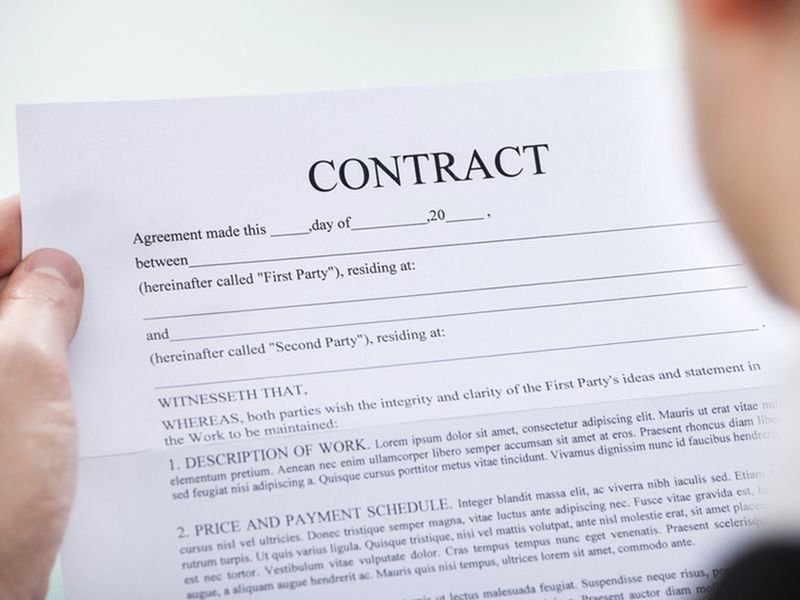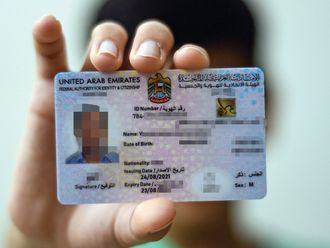
Dubai: Any disputes arising in the UAE can be raised with the UAE court system, which operates at the federal level as well as the local level for a few emirates.
The different types or degrees of court system in the UAE are:
1. Court of First Instance (federal and local)
2. Court of Appeal (federal and local)
3. Federal Supreme Court (at the federal level) and the Court of Cassation at the local level of the emirates which have independent judicial departments.
What is a civil case?

A civil case involves a plaintiff who files a case against another person or entity, referred to as the defendant. A civil case usually involves the violation of a legal duty owed to the plaintiff, a violation of a contract or if a plaintiff claims any harm or damage done by the defendant.
In the UAE, Federal Law No. 11 of 1992, as amended by Law No. 10 of 2014 concerning the Civil Procedural Law regulates the method, procedures and jurisdiction for litigations in civil, commercial and personal status lawsuits. It establishes the method of appealing and executing the judgements.
So, if you wish to file a civil case, these are the steps you should follow.
Step 1 – Speak to a lawyer

The first step whenever you are considering or involved in any legal action is to seek legal advice.
Suneer Kumar, senior associate at legal consultancy Al Suwaidi and company, said that it is extremely important to check with an expert before taking any decision.
“Recently, a man came to me and told me that someone had filed a criminal case against him. It was a cyber-crime case, based on a Whatsapp message. The judge ruled against him. He was asked to pay a certain amount of money as fine. After he paid the money, he found out that the other party had gone on to file another civil case against him. He told me that he was under the impression that he would just have to pay the money and the matter would be settled,” Kumar told Gulf News.
It is important to note that the criminal judgment is a penal judgement and the punishment is either imprisonment, or fine, or both. However, the complainant has the right to file a civil case to recover the compensation or amount from the accused based on the criminal judgment. Payment of fine or imprisonment will not relieve an accused from his or her obligation of payment of outstanding indebtedness or compensation.
“It is important to note that the criminal judgment is a penal judgement and the punishment is either imprisonment, or fine, or both. However, the complainant has the right to file a civil case to recover the compensation or amount from the accused based on the criminal judgment. Payment of fine or imprisonment will not relieve an accused from his or her obligation of payment of outstanding indebtedness or compensation. The man would have known about this if he had spoken with a legal consultant at the start. Therefore, it is always better to seek legal advice from a lawyer. Ignorance of law is not an excuse,” he added.
Step 2 – Determine a court's jurisdiction

If the defendant is staying in Sharjah or Ajman you cannot file a civil case in Dubai, you have to file in the appropriate jurisdiction.
In general, a court's jurisdiction lies in the defendant's domicile. If he has no domicile, then the jurisdiction would be the area of his residence or work.
In commercial cases, the plaintiff can choose the court to which he can bring a claim to. He can bring it to either:
• The court in the area where the defendant resides,
• The court in the area where the agreement was made, or executed wholly or partially,
• The court in the area where the contract should have been performed.
For other types of situations, the law has been ammended to include more examples that determine the jurisdiction of the courts, according to Jihene Arfeoui, a Dubai-based legal researcher.
Step 3 - Mediation

If you have spoken with a lawyer, the first option that will be presented, before filing a civil case, is settlement. Amicably settling a case can save parties from spending a lot more time and money in a long legal process. Quite often getting the initial advice might not even cost you a lot of money.
“Initially, when a client comes to us, we do not charge for advice. We just give a general advice and often recommend an out-of-court settlement. If he still has a valid claim and wants us to review the documents for a detailed advice, those services are charged,” Kumar said.
The UAE’s court system offers many options for mediation and amicably resolving a case. These include:
• commercial disputes resolution committees
• family guidance committees
• settlement and reconciliation committees
• rental dispute resolution committees
• labour dispute resolution committees.

“In Dubai, if the claim is under Dh100,000 you can go to the reconciliation committee. In the federal court with Sharjah, Abu Dhabi, Ajman, for claims below Dh500,000 you can go to the reconciliation committee, and if not resolved the case can be taken to court,” Kumar said.
He added that for labour dispute cases, the parties are obliged to first raise the issue with a dispute resolution committee with the concerned labour department in the emirate before moving the case to court.
How do I contact these committees?
For commercial disputes, you can contact the following centres:
Abu Dhabi Commercial, Conciliation and Arbitration Centre
Tel: +97126317599
Fax: +97126311410
E-mail: adccac@adcci.gov.ae
Website: www.adccac.ae
Dubai International Arbitration Centre (DIAC)
Baniyas Road, Deira
P.O. Box: 1457
Dubai, United Arab Emirates
Telephone: 04 202 8343
Fax: 04 202 8668/669
DIFC-LCIA Arbitration Centre
Dubai International Financial Centre
Al Fattan Currency House Tower 2 Level 8
P. O. Box 506870
Dubai, United Arab Emirates
Tel: +971 4 364 5400
Fax: +971 4 584 4329
Emergency: +971 50 899 2769
International Islamic Centre for Reconciliation and Arbitration (IICRA)
107 Business Avenue Building,
Port Saeed Road,
Deira, Dubai, UAE
Tel: 04 29 4 92 92
Fax: 04 29 5 95 40
www.iicra.com
Info@iicra.com
Sharjah International Commercial Arbitration Centre (Tahkeem)
P.O. Box: 1174, Sharjah, United Arab Emirates
Toll Free: 800 – ( Tahkeem ) 8245336
Tel: +971 6 5304111
Fax: +971 6 5304222
Web: http://www.tahkeem.ae
Email: info@tahkeem.ae
Ras Al Khaimah Centre for Reconciliation and Commercial Arbitration
Al Jaz'ah Road, R.A.K., UAE
Tel: 07 2260000
Fax: 07 2260112
Email: info@rakchamber.ae
For family disputes you can contact:
Family Guidance Departments – Abu Dhabi, Al Ain and Al Dhafra
Contact Numbers: 026514234 - 026512522
Website: https://www.adjd.gov.ae/EN/Pages/Family-guidance.aspx
For Rental dispute, you can contact:
Dubai Land Department, Rental Dispute Committee
7 Beniyas Rd – Dubai
Tel: 800 4488
Committees Department Services for Settling Rental Disputes - Abu Dhabi
Abu Dhabi Judicial Department
Whatsapp - +971 2 800 2353
P.O. Box 84, Abu Dhabi
United Arab Emirates
Call Center : 800 ADJD (2353)
Land Line : +971-2-6 512222
For labour disputes, you can contact the Ministry of Human Resources and Emiratisation
Tel: 800 60
Email: ask@mohre.gov.ae
Website: www.mohre.gov.ae
Step 4 – File a lawsuit

If the committees do not reach an amicable resolution, you can apply for a 'No objection' letter and submit a statement of claim to the Court of First Instance.
You should ideally ask a lawyer to file the case, as you would need to provide supporting documents and the statement of claim to the Case Management Office. If an attorney wants to represent the party, a notarised power of attorney is a must.
Quite often this step is done online.

Each defendant is entitled to receive a copy of the plaintiff’s claim.
If the case is against or by a company, you would need to provide the company’s trade licence, email address, makaani number, location map and details of cases against the company.
If the case is related to nullification, revocation or validation of a contract, a copy of the contract is required.
For the implementation of judgements issued abroad, the UAE's Ministry of Foreign Affairs and International Cooperation should attest the original judgement.
Documents presented to the UAE's courts must be in Arabic; otherwise, it should be translated into Arabic by a legal translator approved by the UAE's Ministry of Justice.
The plaintiff should sign the lawsuit if it is to be submitted by the attorney. After submitting the documents, the plaintiff or the attorney will be asked to pay the court fee based on the type of the case.
In a Dubai court, for example, some civil cases would require a court fee of six per cent of the total claim amount, according to Jihenne. For labour cases, at times the court can hear the case for free when it is filed by an individual/employee for claims under Dh100,000.
Step 5 – Get a case number and date of hearing

After that, the court will give the case a number and a date for the hearing. The court clerk, through the court official (the bailiff), will serve a notification to the defendant within 10 days from the date the statement was filed.
Step 6 - Estimating case value
The value of the case is estimated on the day of trial. The valuation should be based on the last request made by the parties in the lawsuit and shall include indemnities, revenues and expenditure etc. due on the day of trial.
Step 7 – Defendant’s response
The defendant should submit a defence memorandum (a plea) to the Case Management Office and copies of his documents bearing his signature at least three days before the date of hearing.
The time limit for appearing before the court is normally 10 days, which may be reduced if necessary, to 3 days.
The time limit for the appearance in urgent actions is 24 hours, which may be reduced to an hour if necessary, provided that the litigant party is notified about it.
Step 8 – Court hearing
On the day scheduled for hearing the case, the parties or their attorneys are required to appear before the court. The hearing will be held in the first session and if the plaintiff or the defendant submits a document in this session which he could have submitted while filing the case, the court may accept it if it would not result in the adjournment of proceedings.
If the submission results in an adjournment, the court on its own motion or at the request of the litigating parties, may decide to impose a fine. If the plaintiff or the defendant fails to attend the hearing, the court shall decide if it is a valid one or decide its removal. If no party requests to proceed with the case nor attends the sitting after 60 days have passed, the case will be cancelled.
If the defendant alone, after receiving the notification, fails to attend the hearing, the court will decide on the lawsuit unless he was not served with the notification, wherein the court, in non-summary proceedings, may adjourn the hearing to the following session.
The court may not postpone a lawsuit more than once for the same reason cited by one party except for a valid excuse, if the adjournment period shall not be for more than two weeks.
If the court finds that it lacks jurisdiction to hear the case, it should order the case referral to the competent court and the court clerk should notify the parties about the decision.

Step 9 – Ending of case
A civil action may be ended if both parties agree not to proceed with the case and get approval for this from the court. Such cessation could be for a period of six months from the date of the court's approval as per Article 101 of Civil Procedural Law.
No party shall be allowed to expedite the case during this period, except with the consent of the other.
Step 10 - Judgement
Finally, the judge passes the judgement in court, including its verdict on the guilty party, the total cost of the lawsuit and how the cost will be paid.
Step 11 - Petition for review of a judgement
The litigants may seek a review of the final judgement if:
• The opponent's fraud influenced the court's ruling,
• The court's decision was based on papers which were confirmed to be falsified after the issuance of the ruling,
• The ruling was based on the testimony of a witness who was later adjudged false.
Step 11 - Appeal
The judgements of Court of First Instance may be contested before the Court of Appeal within 30 days of the date of judgement; however, for urgent type of cases, they must be appealed against within 10 days.
The grounds of the appeal can be based on factual or legal grounds or both.
Litigants may also introduce additional evidence to the Court of Appeal or request additional witnesses for the case.

Step 12 - Execution of judgement
The judgement is executed under the supervision of the execution judge at the Court of First Instance, assisted by execution representatives.
- Information courtesy government.ae








